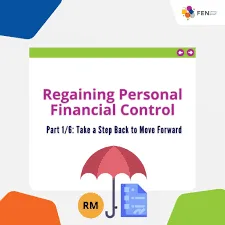Smart Strategies to Regain Financial Control and Protect Your Future
Managing money effectively is one of the most important skills in life, yet it’s also one of the hardest to master. Financial struggles can happen to anyone, whether due to job loss, unexpected expenses, debt accumulation, or simply poor planning. Regaining control of your finances isn’t just about tightening your belt; it’s about building a foundation that ensures stability, security, and confidence in your future.
The good news is that even if your financial situation feels overwhelming now, there are practical steps you can take to regain control and set yourself up for success. This guide explores actionable strategies to organize your money, rebuild savings, and protect yourself from future challenges.
1. Start by Assessing Your Financial Reality
Before you can fix anything, you need a clear understanding of where you currently stand. Create a detailed overview of your finances by listing your income sources, monthly expenses, outstanding debts, and any assets you have. Be completely honest with yourself about your spending habits and financial commitments.
Once everything is laid out, categorize your expenses into essentials (such as rent, groceries, and utilities) and non-essentials (like entertainment, dining out, and subscriptions). Seeing the full picture allows you to identify where changes can make the biggest impact. This first step is often uncomfortable, but it’s crucial to gain clarity before making any adjustments.
If you’re unsure how to begin organizing your personal budget or need support managing debt, communities such as financial helping offer practical advice and real-world experiences from people facing similar challenges.
2. Create a Realistic and Flexible Budget
Once you have a complete understanding of your financial situation, it’s time to build a realistic budget. The goal is to create a plan that fits your lifestyle and helps you stay consistent. Start by prioritizing your essential expenses, followed by debt repayments and savings. Every dollar should have a purpose.
One effective approach is the 50/30/20 rule:
- 50% of your income for needs
- 30% for wants
- 20% for savings or debt repayment
However, this ratio can be adjusted based on your current priorities. For instance, if you’re carrying significant debt, it might make sense to allocate 30% or more toward paying it down. Flexibility ensures you remain adaptable when life throws unexpected expenses your way.
To make budgeting easier, consider using digital tools or apps that track spending automatically. You can also schedule a monthly “money check-in” to review your progress and adjust where needed.
3. Eliminate Unnecessary Spending
Reducing unnecessary expenses doesn’t have to mean depriving yourself. It’s about identifying habits that drain your budget without adding value to your life. Small savings accumulate over time, creating more financial breathing room.
Here are some common areas to review:
- Subscriptions and memberships: Cancel or pause any you no longer use.
- Dining out and takeout: Try cooking at home or preparing meals in advance.
- Impulse purchases: Wait 24 hours before buying non-essentials.
- Utility bills: Compare providers or reduce energy consumption.
By eliminating these leaks, you can redirect those funds toward more meaningful financial goals like debt reduction or building an emergency fund.
4. Build an Emergency Fund
Unexpected events like car repairs, medical bills, or job loss can derail your progress if you don’t have a financial cushion. That’s why an emergency fund is one of the most powerful tools for regaining and maintaining control.
Start small if necessary. Even saving $20 a week adds up over time. Aim to build a fund that covers three to six months’ worth of essential expenses. Keep this money in a separate, easily accessible savings account, but avoid touching it unless it’s truly necessary.
This buffer gives you peace of mind and prevents you from relying on high-interest loans or credit cards when life surprises you.
5. Manage Debt Strategically
Debt can be one of the biggest obstacles to financial stability, but there are proven strategies to manage and eventually eliminate it. Two popular approaches are:
- The Snowball Method: Focus on paying off your smallest debt first, then move to the next one. This builds motivation as you see progress.
- The Avalanche Method: Pay off debts with the highest interest rates first to minimize the total amount paid over time.
Whichever strategy you choose, stay consistent. Consider consolidating debts if you can secure a lower interest rate, and avoid taking on new loans unless absolutely necessary.
If you’re researching lenders or trying to understand which loan providers are trustworthy, reading authentic consumer experiences such as Magnolia payday loans reviews can give you valuable insights before making decisions.
6. Increase Your Income Streams
Sometimes, cutting expenses isn’t enough. To truly regain control of your finances, consider finding ways to increase your income. Additional sources of income can accelerate debt repayment, help build savings faster, and reduce financial stress.
Some practical options include:
- Freelancing or part-time work: Offer skills like writing, design, tutoring, or translation.
- Selling unused items: Declutter your home and turn unwanted belongings into cash.
- Starting a side business: Monetize a hobby or service that fulfills a market need.
- Investing in yourself: Learn new skills or certifications to qualify for better job opportunities.
The key is to make use of your strengths and available time without overextending yourself. Even modest additional earnings can create meaningful change.
7. Strengthen Your Credit and Protect Your Financial Reputation
Your credit score influences everything from loan approval to housing and even job opportunities. Regularly review your credit report to ensure accuracy and dispute any errors. If your score is low, focus on consistent, on-time payments and lowering credit utilization.
To improve your credit health, follow these steps:
- Pay at least the minimum due on all accounts every month.
- Avoid closing old accounts, as they contribute to credit history length.
- Keep your credit utilization below 30%.
- Limit new credit applications within a short time frame.
Over time, these habits help you build a stronger credit profile and open doors to better financial opportunities.
8. Plan for Long-Term Financial Security
Once you’ve stabilized your short-term finances, it’s time to think about your long-term goals. Building wealth and protecting your future require a combination of discipline, education, and strategic planning.
Here’s how you can get started:
- Start investing early: Even small amounts can grow significantly with compound interest.
- Contribute to retirement accounts: Take advantage of employer-sponsored plans or open an IRA.
- Diversify investments: Spread your risk across different asset types.
- Get insured: Protect your family with health, life, and disability coverage.
By focusing on the long-term picture, you can create lasting financial independence and peace of mind.
9. Build Better Financial Habits and Mindset
Financial control isn’t achieved overnight; it’s sustained through consistent, positive habits. Commit to small but meaningful routines that reinforce smart money management.
Some effective habits include:
- Tracking expenses weekly
- Setting monthly savings goals
- Reading or listening to financial education content
- Celebrating milestones when you reach them
Equally important is maintaining a healthy mindset. Instead of focusing on what you lack, focus on the progress you’ve made. Each step, no matter how small, brings you closer to financial freedom.
10. Seek Guidance and Community Support
Managing finances can sometimes feel isolating, but you’re never alone. Joining online communities or seeking professional advice can make a big difference in staying motivated and informed. Engaging with others who share your goals can offer fresh perspectives, accountability, and emotional support during difficult times.
Online resources and discussion platforms such as financial forums and Reddit communities can be excellent places to exchange experiences, ask questions, and learn from others’ successes and mistakes. Learning from real-world examples helps you make smarter financial choices and avoid pitfalls.
Final Thoughts
Regaining financial control is not about perfection, it’s about progress. By understanding your current situation, reducing unnecessary expenses, managing debt strategically, and planning for the future, you can build a secure financial foundation that supports both your present and long-term goals.
Consistency and patience are essential. Every small decision compounds over time, leading to lasting stability and confidence in your financial future. Whether you’re working to pay off debt, grow savings, or simply feel more in control, remember that each positive step counts.
With discipline, awareness, and the right support system, financial freedom isn’t just a dream—it’s an achievable reality.





